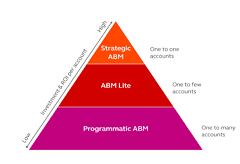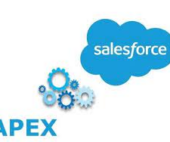Marketing to Generation Alpha: A Blueprint for Marketers
As Generation Alpha emerges onto the consumer landscape, marketers face the challenge of engaging with this digitally native and globally conscious cohort. With the oldest members just 14 years old, they’re already shaping purchasing decisions and are poised to wield significant buying power in the coming years. To understand how to effectively connect with Generation Alpha, we turn to insights from leading researchers in the field.
What makes Gen Alpha unique?
Unlike prior generations, Gen Alpha is growing up in a digital age that empowers them to make decisions for themselves at a younger age. They have unprecedented access to information, online content, and social networks, allowing them to form opinions and make choices independently.
What Defines Generation Alpha?
Generation Alpha, born from 2010 onwards, represents the latest demographic wave. Despite their youth, they’re already exerting influence on their parents’ spending habits, setting the stage for their own economic impact, projected to surpass $5.46 trillion by 2029. This generation is characterized by its global outlook, digital fluency, and social connectivity. They are mobile in terms of lifestyle, visual in content consumption, and deeply intertwined with technology and social media. These children are coming of age in a pandemic and post-pandemic world. Face masks are as common as Tik Toks.
Why can’t Gen Alpha read?
The performance of Gen Alpha in schools is influenced by multiple factors. One key aspect is the evolving educational landscape, with traditional teaching methods sometimes struggling to cater to the unique learning styles and preferences of this generation. A woke generation of teachers is creating an ultra-woke generation of students.
Key Insights from Experts
Mark McCrindle, who coined the term Generation Alpha, underscores their digital and social nature, highlighting their unique preferences and behaviors. Heather Dretsch, Ph.D., emphasizes the influence of millennial parents on Generation Alpha’s consumer habits, noting a nod to nostalgia in brand preferences.
Understanding Gen Alpha’s Values
Generation Alpha exhibits a heightened social consciousness, surpassing even their predecessors, Gen Z, in their concern for global issues such as climate change, racism, and equality. They view themselves as stewards of the future, advocating for positive change on a global scale. Even as young as age 14.
What is the least parented generation?
According to Wikipedia, a 2004 marketing study conducted by Reach Advisors stated that Gen X kids “went through its all-important, formative years as one of the least parented, least nurtured generations in U.S. history.” Marketers need to address the fact that the least parented generation is raising the Gen Alpha generation.
What problems will Gen Alpha face?
Less development of creativity and imagination. Without questioning the skills that the Alpha generation will acquire thanks to new technologies, it should be stressed that as the use of physical toys is reduced, the development of imagination and creativity will suffer. Reduced ability to achieve happiness. An expectation of all toys being interactive from an electronic and AI perspective is going to develop a different generation than one that played with rolling pins and pie pans or cardboard boxes or outside until the street lights came on.
Navigating Marketing Strategies
To resonate with Generation Alpha, brands must align with their ethical values authentically. Simply paying lip service won’t suffice; brands must demonstrate genuine commitment through tangible actions, such as donations or sustainable practices. Gen Alpha’s sophistication makes them adept at discerning inauthentic messaging, requiring marketers to build genuine, two-way relationships.
Generation Alpha–born from the early 2010s to the mid-2020s–will be the largest and most connected generation in history. Plus, their economic footprint is expected to wield as much spending power as Millennials and Gen Z combined, by the year 2029.
Adapting to Gen Alpha’s Preferences
Generation Alpha’s digital proficiency and individualistic tendencies necessitate a shift in marketing approaches. Traditional branding methods may fall short, as this generation seeks personal engagement and co-creation opportunities. Brands should prioritize authentic digital relationships over mere consumption, leveraging platforms where Gen Alpha feels most at home.
Embracing Nostalgia and Authenticity
Millennial parents play a significant role in shaping Gen Alpha’s preferences, often introducing them to brands and content from their own childhoods. Nostalgia can be a powerful tool for marketers, tapping into shared experiences and cultural touchpoints. Moreover, Gen Alpha values authenticity and genuine connections, favoring brands that resonate with their personal identity and values.
Numbering 2 billion and counting, Gen Alpha (born 2010-2024) is expected to be the biggest generation in history. And even though its oldest members are only 14 years old, Gen Alpha is already an economic force to be reckoned with.
“They’re spending money, and in significant amounts. Not only that, they influence parental purchasing decisions in a significant way,” says social analyst and demographer Mark McCrindle. “We estimate that the global spend of Generation Alpha direct, and in influence, is $5.5 trillion already, so a pretty phenomenal economic footprint to go with their unsurpassed demographic footprint.”
Its youngest members will make their appearance this year, but the oldest Alphas were born the same year the iPad came out. We think of kids from the 80’s being born with a joystick in their hands. The 90’s with a keyboard. Imaging coming into a world as connected as with access to an iPad and the internet.
As the first entire generation born into the world of smartphones and other connected devices, Alphas have become consumers much earlier than previous generations. That’s thanks, in part, to online forms of payment linked to parental credit cards or other digital currencies. And they’re using that money to buy digital games and accessories.
“They’re buying virtual items using virtual currency,” McCrindle says. “So, there’s whole new ways of spending and means of spending for this generation that’s really leading to that increased commercialization.”
Looking Ahead
As marketers navigate the evolving landscape of Generation Alpha, they must remain agile and responsive to shifting preferences and behaviors. By prioritizing authenticity, ethical values, and meaningful engagement, brands can forge lasting connections with this sophisticated and socially conscious generation.
In conclusion, connecting with Generation Alpha requires a nuanced understanding of their values, preferences, and digital behaviors. By embracing authenticity, fostering genuine relationships, and adapting to their evolving needs, marketers can successfully engage with this influential demographic.













